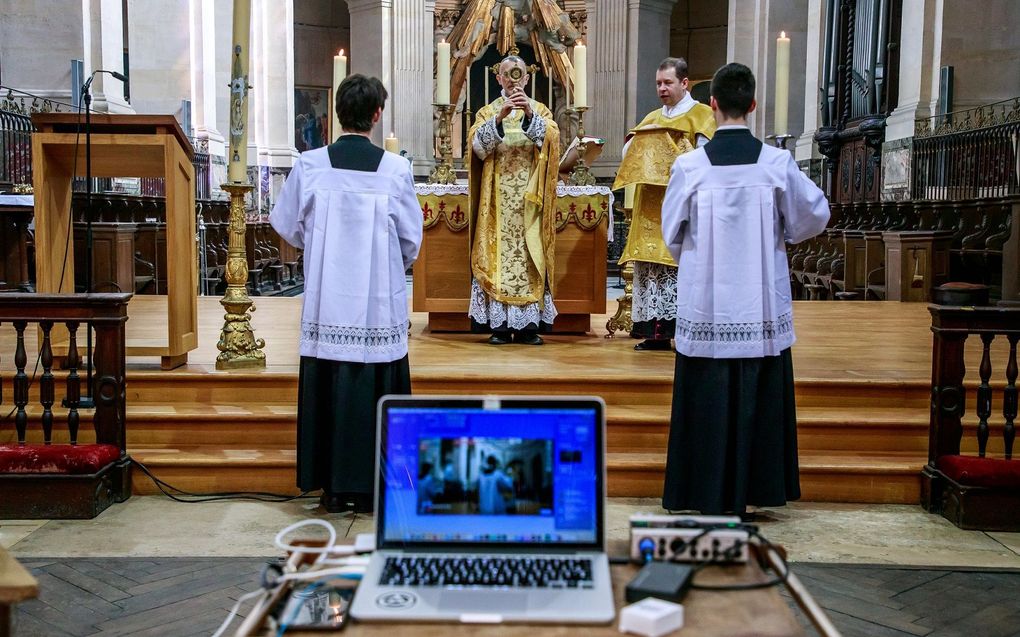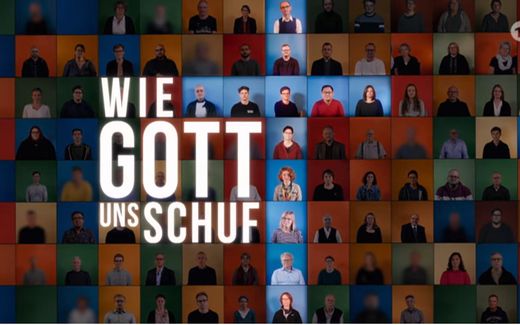“There is a lot more to digitalisation of churches than having a Facebook account”

French worship service which is broadcast on a livestream. Photo EPA, Christophe Petit Tesson
Christian Life
Nowadays, churches can no longer avoid digitalisation. The German expert Hanno Terbuyken explains how congregations can use the world wide web to their benefit.
That the digitalisation of society has a significant impact on churches is clear, Terbuyken says to Ref.ch. "It makes three things possible", he explains. First, spatial and temporal boundaries are broken down. People can always reach each other from a distance and information is available everywhere. However, this possibility of connecting with anyone also changes the idea of community, as Terbuyken warns. "Today, I can find like-minded people online who are not from my church community. That means that a whole new common space is created. The church has to deal with the fact that community changes as a result: just because we all live in the same place does not automatically make us a community."
In addition, the world wide web contains unlimited storage for information. And lastly, the access that the internet gives people to so many resources breaks down hierarchical structures.
That last point may also be a challenge for churches, Terbuyken thinks. Where previously only a pastor knew about the church's calendar, now all church members may be able to access it. "Everyone is allowed to know what appointments the pastor has, as long as it does not violate pastoral secrecy", he says. "Authorities no longer have information sovereignty."
Social media
To make a successful digital transition, churches should ask themselves some questions, Terbuyken points out. They should think about what their goal is with digitalisation, and about whom they want to reach. Furthermore, Terbuyken suggests that churches find someone in the congregation who has the skills to use digital channels instead of leaving everything to the pastor or the communication specialist of the church.
People find it more attractive when a person posts something on social media under their own name and profile, not only via the official channel of the organisation, according to Terbuyken. "People follow people."
However, that does not mean every church needs a TikTok account or a Facebook page. "If all members in a community are over 40 years old, a TikTok account is not required, and if nobody wants to tweet, then there is no need for a Twitter account. More important is that recognisable people are on the channels that people are already following."
Another tip that might help reach as many members as possible is ensuring a good website, Terbuyken says. "It answers the following questions: where is the church? How can it be reached, and when do activities take place?" He points out that people are not looking for theological texts when searching for the website. Instead, they want practical information.
Furthermore, he says it is essential for churches to keep in touch with interested people. "Digital contact forms and classic e-mail newsletters should not be underestimated. Anyone registered for this explicitly wants to receive information from this church. Also, bulletin boards can be digitised by adding a QR code that leads people to the church's website."
Related Articles






